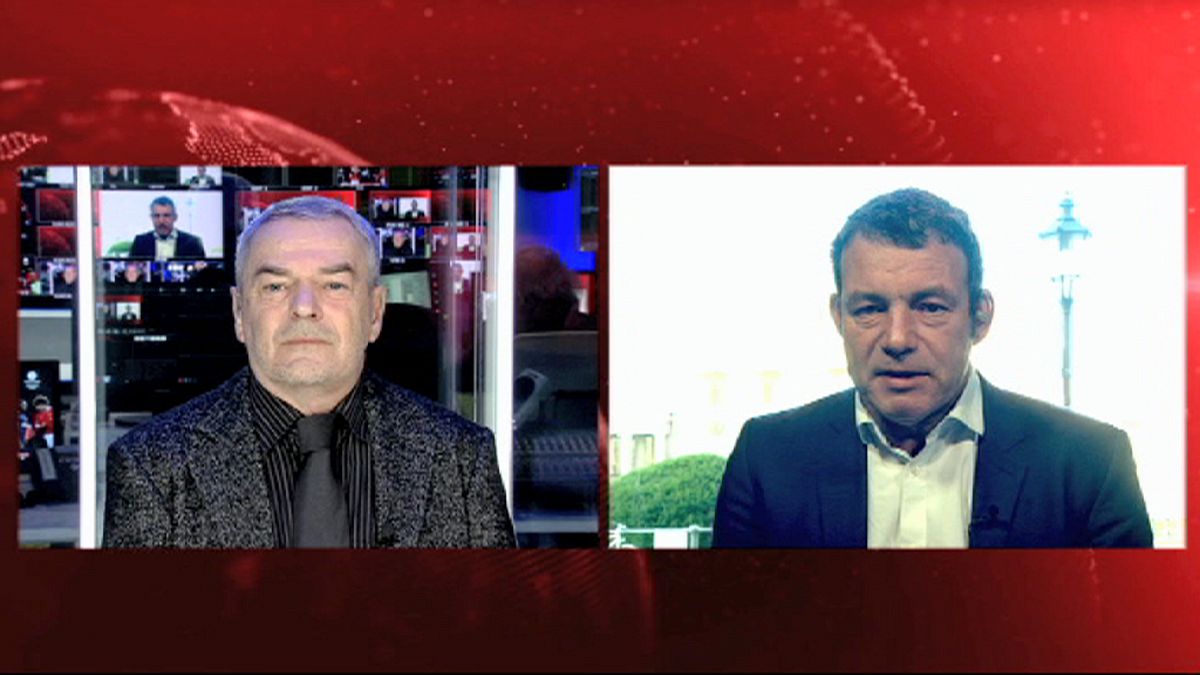With France still reeling from last week's terror attacks, euronews' Rudolf Herbert spoke with top political scientist Asiem el Difraoui, an expert on the Arab world and Islam.
euronews: Will the attacks from last week change Europe? Will they change France?
Asiem El Difraoui: I certainly believe that the attacks in France have a historical significance. And there is the big question: Will the French society that is already weakened by the economic crisis, by a certain lack of self-confidence, use the horror as an opportunity to draw closer, to think about integration or will certain political forces use this moment to polarize? Here, of course, I am thinking especially of the far-right Front National.
euronews: Isn’t it also a question of whether these attacks will strengthen a movement like Pegida in Germany?
Asiem El Difraoui: It is a problem from my point of view not only for Germany, but also for whole Europe. The question is: Will these attacks strengthen Islamophobia, far-right groups? Will populist groups get even more popular? I think that we really are in a very decisive moment and that all moderate politicians and the Muslim associations must move together.
euronews: What is the role of Islamism, of religious fundamentalism in these attacks? Is he just a pretext or is it more?
Asiem El Difraoui: I think that a really basic question is: Has Jihadism anything to do with Islam or should we better talk about a sect or a kind of anti-culture, which uses Islam only as a facade? Even Islamism, even people who demand that Islam plays a political role, even people demanding an Islamic state are saying that this jihadist movement has nothing to do with religion. Jihadism is for me an extreme sect outside of Islam.
euronews: In recent years thousands of European-born young Muslims have radicalised, hundreds of them are fighting in Iraq and Syria. How does it come?
Asiem El Difraoui: Quite a number of factors are coming together. Basically Jihadism has spread as a form of anti-culture among young people, fortunately there are relatively few. It is no longer fashionable to be a punk, but if you feel excluded from Western society, if you want to be very different, if one wants to express his disapproval, then it is relatively easy to become a jihadist. In addition the Jihadism has still a promise of salvation, he is promising to young people not only that it is really subversive being jihadist. This promises made by the jihadist sect also says: Come to us, come to the true faith community and all your sins will be forgiven!
euronews: Isn’t there also a danger that Muslim communities in Europe might be criminalised?
Asiem El Difraoui: Of course, there is the danger. The more people who are rejected, the more religious communities are rejected, the bigger will be the danger of course that they radicalize.
euronews: How can Europe oppose Islamism?
Asiem El Difraoui:The European security services must cooperate much more intense. At the same time in the fight against Jihadism very long-term measures are necessary, large-scale prevention measures that last for years. One have to explain to these young people who are on the margins of society that Jihadism is not a solution, that Jihadism has nothing to do with Islam. But of course this will be a long-term problem, with which Europe will have to deal for decades.
